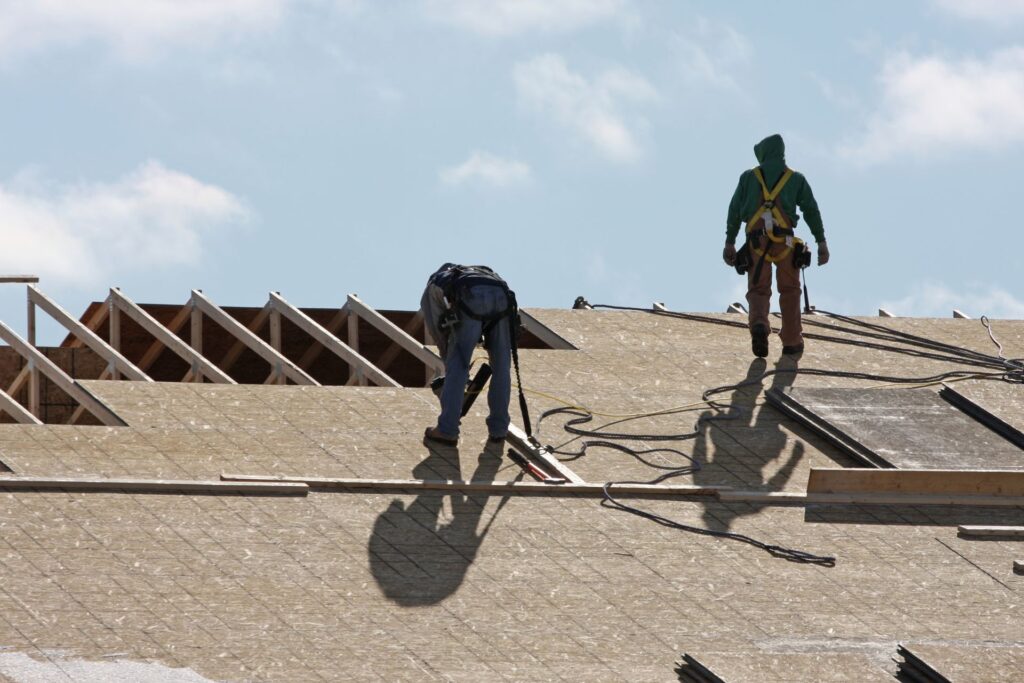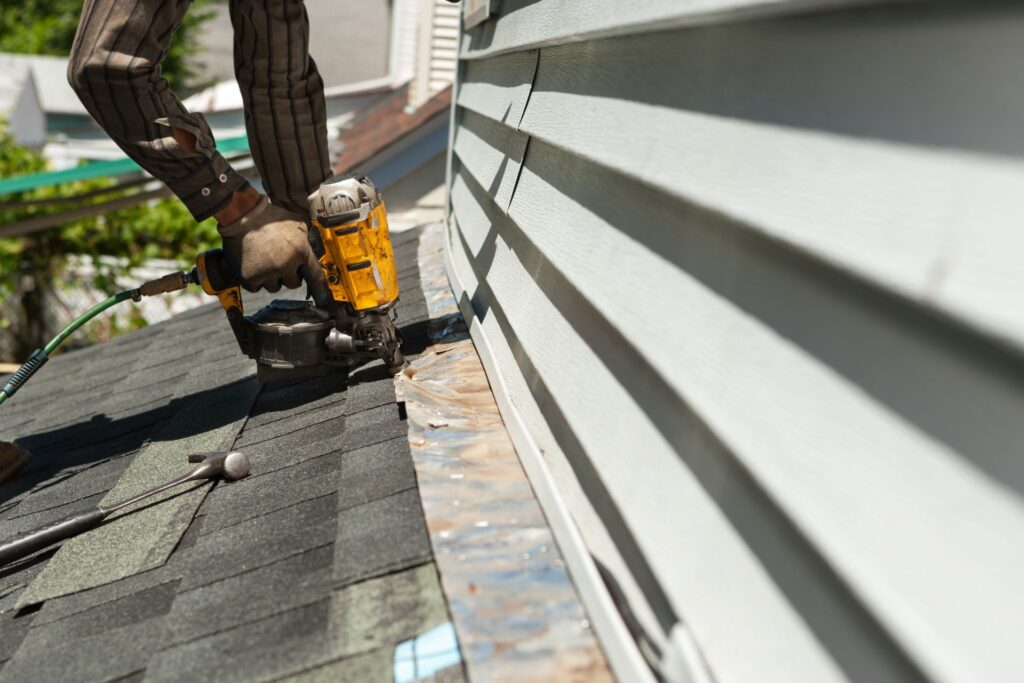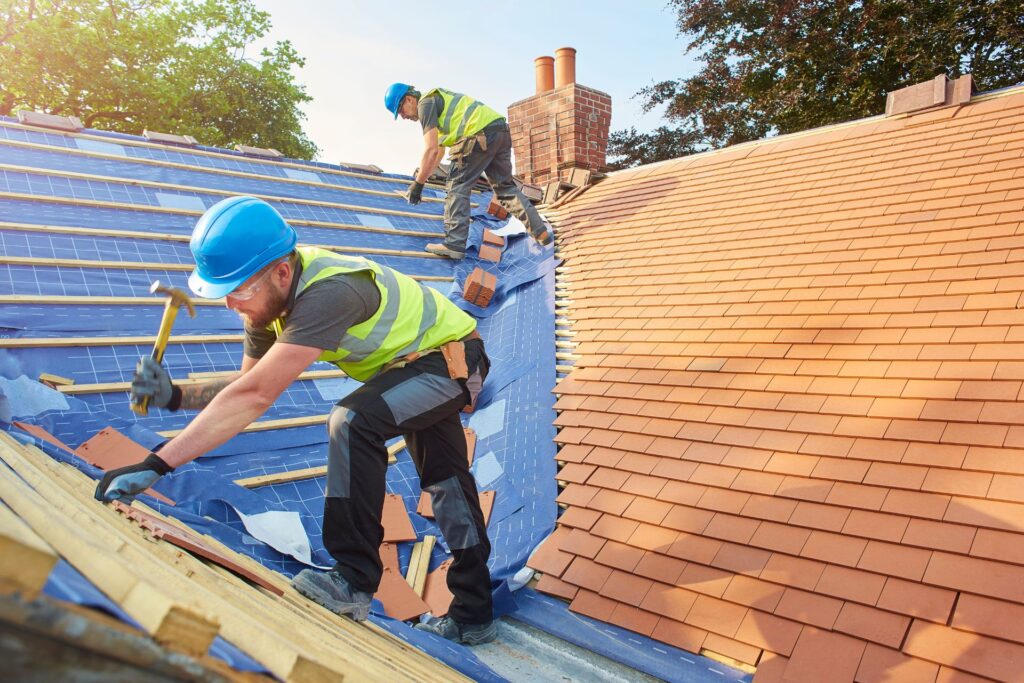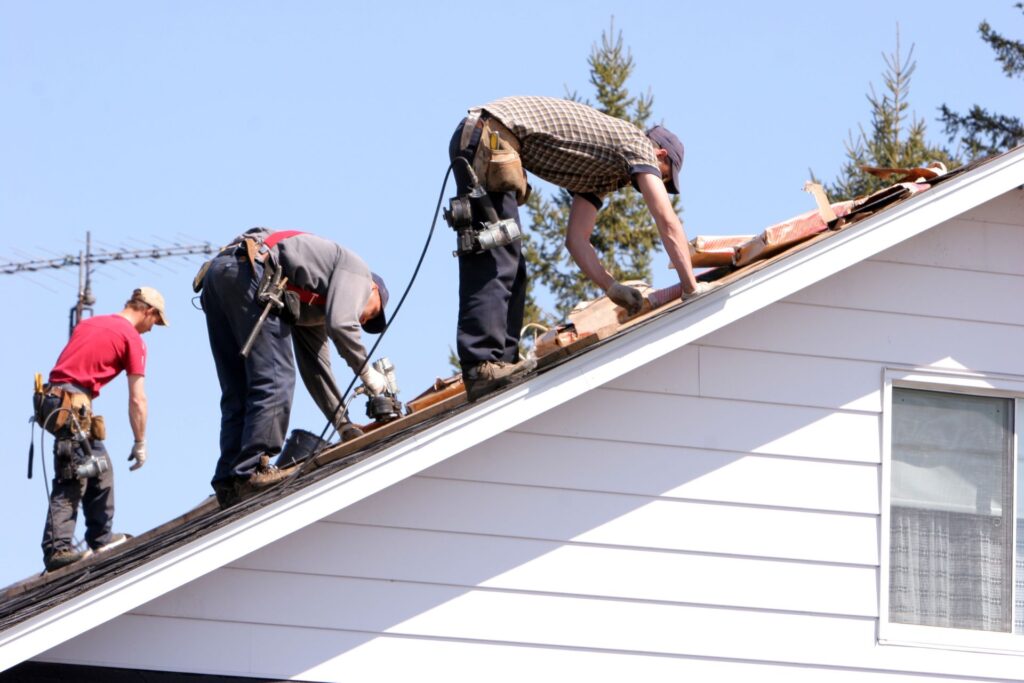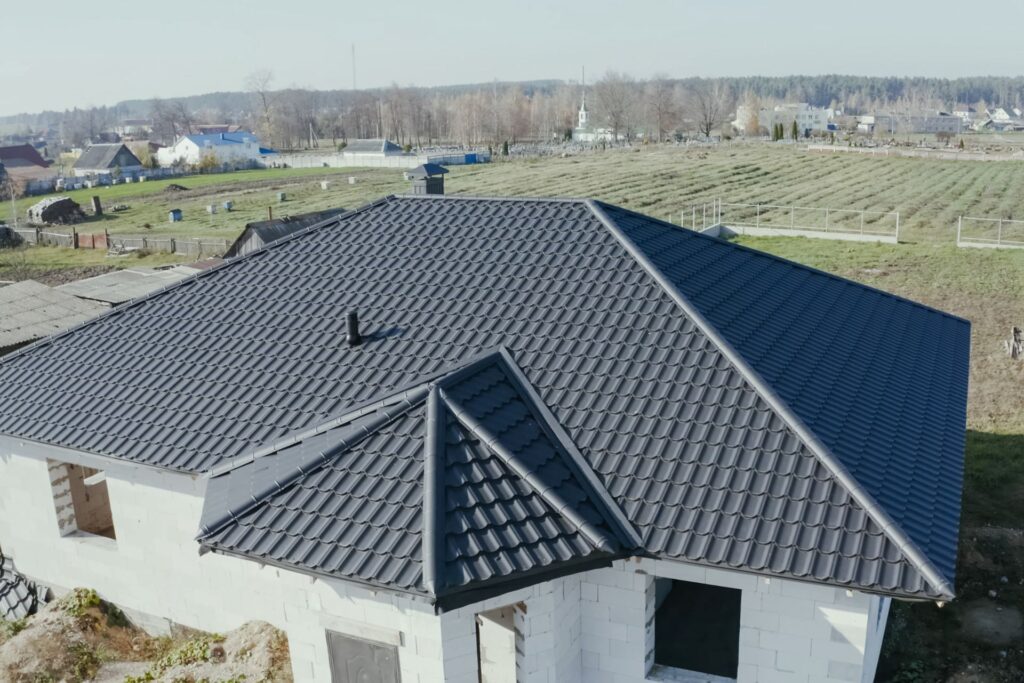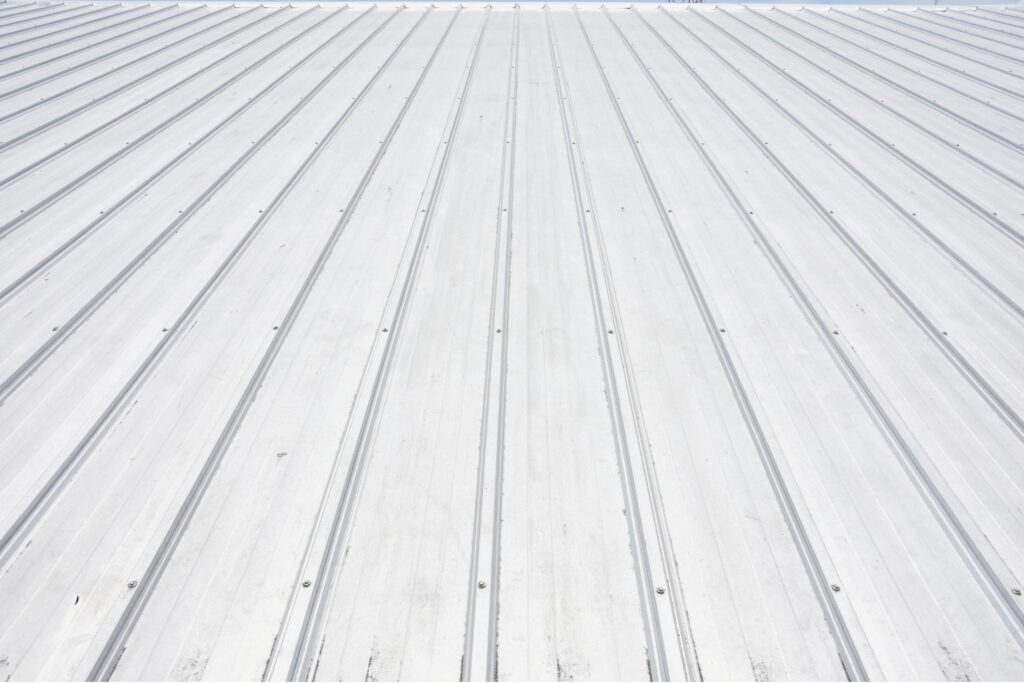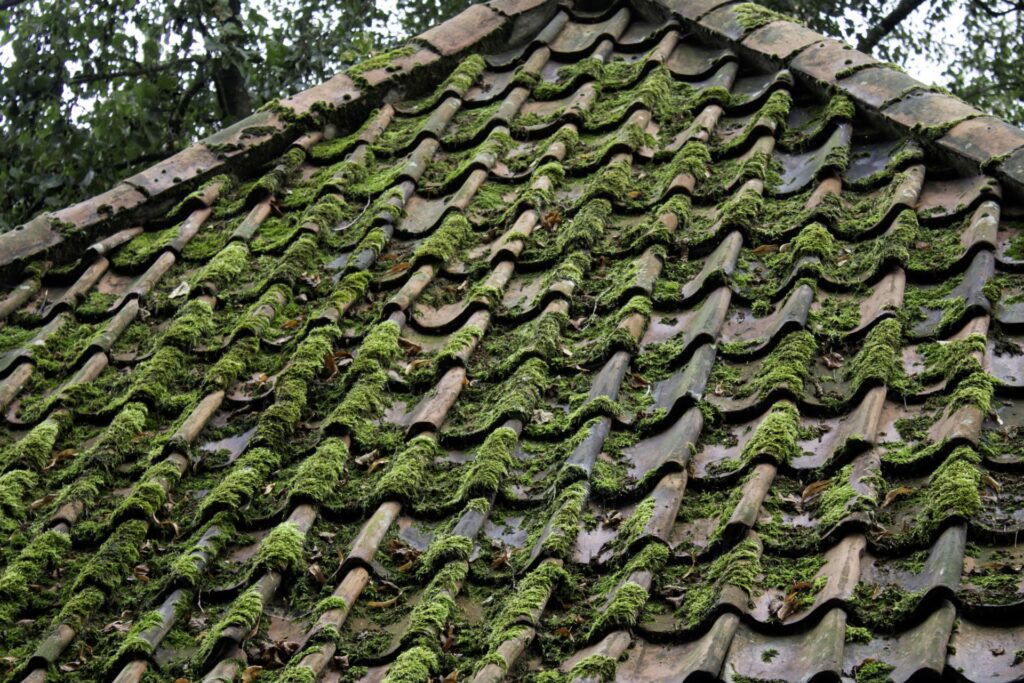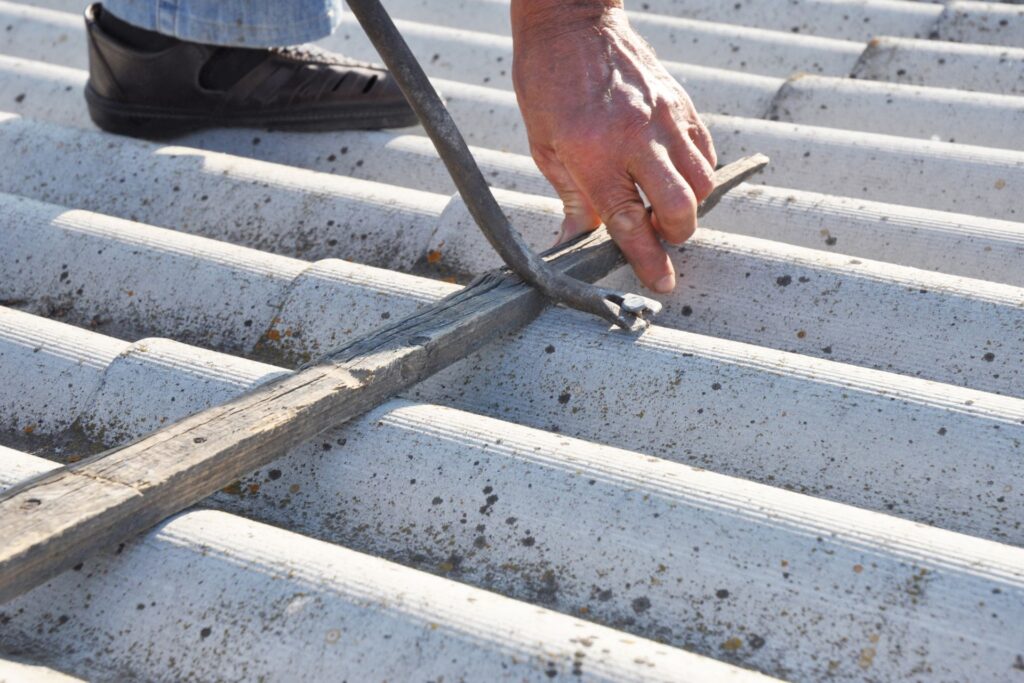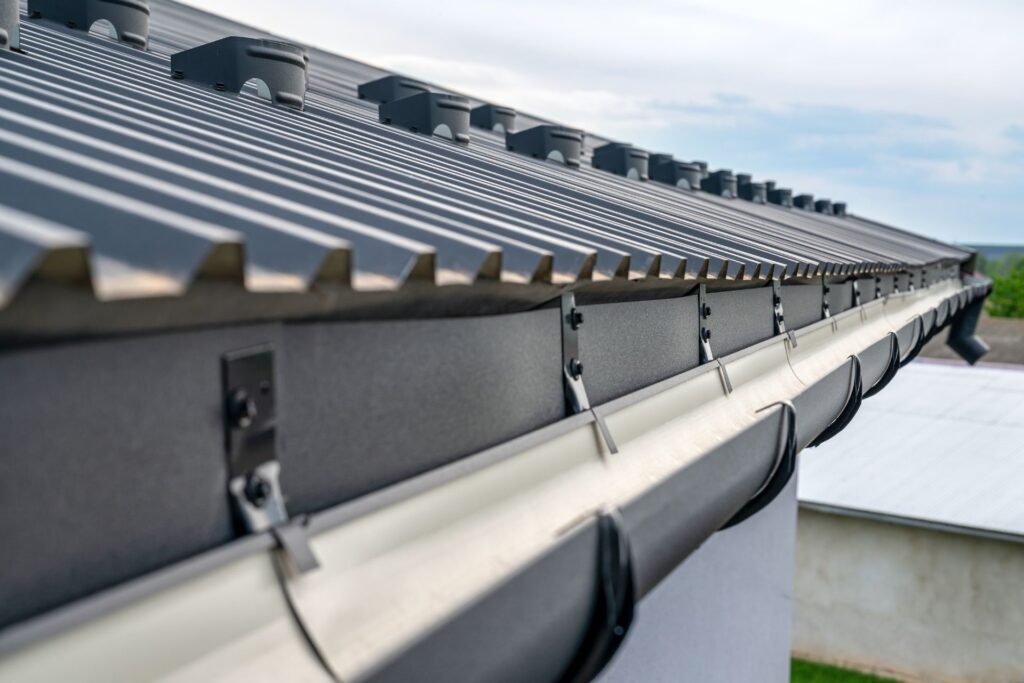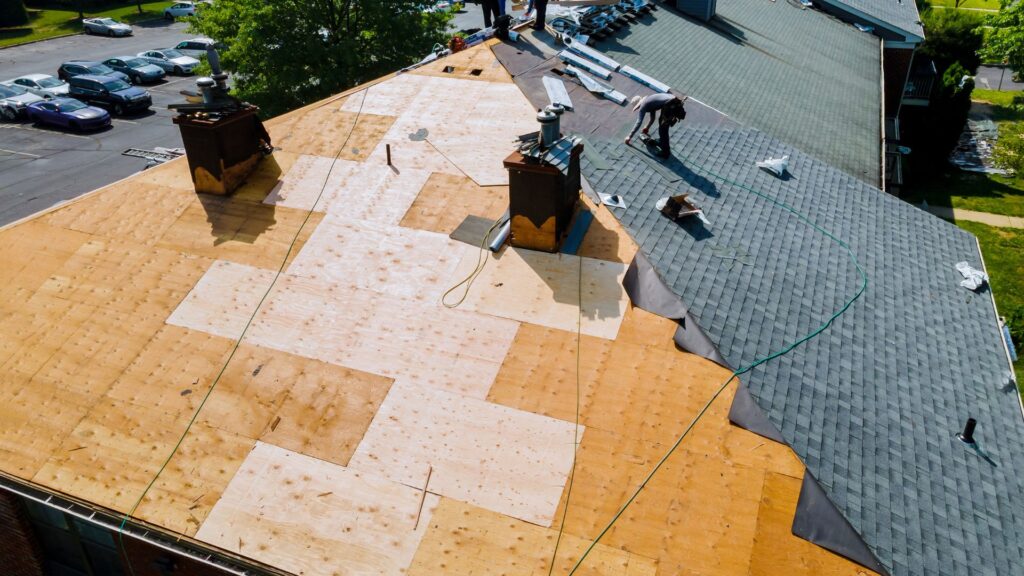Ultimate Guide To Roof Replacement Cost NZ
Welcome to your essential guide on navigating the complexities of roof replacement costs in New Zealand. As the shield protecting your home from the ever-changing whims of nature, a well-maintained roof is not just a necessity but a critical investment in the safety, energy efficiency, and aesthetic appeal of your living space. Whether you’re noticing the first signs of wear and tear, such as leaks or missing tiles, or you’re planning for the future, understanding the financial implications is crucial. This comprehensive guide is designed to arm homeowners like you with the knowledge needed to make informed decisions about materials, labor, and the myriad factors that influence the overall cost of replacing a roof in NZ. With a focus on providing value, clarity, and insight, we’re here to help you navigate this significant home improvement journey, ensuring that you’re well-prepared to invest in your home’s longevity and curb appeal.
On average, the cost of roof replacement in New Zealand ranges from NZ$8,000 to over NZ$30,000, with variations depending on the roofing material, roof size, and complexity, labor costs, and any additional requirements such as old roof removal and structural repairs. Material choice significantly affects the price; for example, metal roofs are generally more cost-effective than tile or shingle options. Given these variables, homeowners are encouraged to seek multiple quotes and carefully consider both immediate and long-term costs and benefits.
Why Roof Replacement Is Crucial
When discussing home maintenance, the importance of a well-maintained roof cannot be overstated. Serving as the first line of defense against various weather conditions, a robust roof is crucial for the protection and comfort of your home. Additionally, the state of your roof plays a significant role in your home’s overall energy efficiency and property value. This article delves into why roof replacement is an essential aspect of maintaining a healthy home and the signs that indicate it’s time for a new roof.
The Significance of a Well-Maintained Roof
Protection Against Weather
Your roof bears the brunt of the elements, from scorching summer sun to freezing winter snow. A well-maintained roof ensures that your home remains safe and dry, regardless of the weather outside. It prevents water damage, which can lead to costly repairs in other parts of your home, and helps maintain a comfortable living environment by providing insulation against heat and cold.
Energy Efficiency
A roof in good condition also contributes significantly to your home’s energy efficiency. Proper roofing materials and installation techniques can reduce heat gain during the summer and heat loss during the winter, leading to lower energy bills. Additionally, some roofing materials can reflect sunlight, further enhancing your home’s energy efficiency and comfort.
Property Value
The state of your roof is one of the first things potential buyers notice. A home with a new or well-maintained roof is more attractive to buyers because it signifies that the property has been cared for. Consequently, investing in your roof can significantly enhance your home’s curb appeal and market value.
Signs That Indicate a Roof Needs Replacement
Leaks
One of the most obvious signs that your roof may need replacing is the presence of leaks. If you notice water stains on your ceilings or walls, it’s crucial to investigate further as this could indicate a compromised roof.
Missing or Damaged Tiles/Shingles
Over time, roofing materials can deteriorate, leading to missing or damaged tiles or shingles. This not only affects the aesthetic appeal of your home but also its ability to protect against weather conditions. Regular inspections can help identify these issues early on.
Sagging
A sagging roof is a clear indication of structural issues, possibly due to long-term water damage or inadequate support. This is a critical sign that your roof needs immediate attention, as it could lead to more significant problems, including a potential collapse.
In conclusion, understanding the importance of a well-maintained roof and recognizing the signs that indicate it’s time for a replacement are key to ensuring the longevity and safety of your home. Regular inspections and maintenance can help extend the life of your roof, but when the time comes, investing in a new roof is a wise decision that can protect your home, improve its energy efficiency, and enhance its overall value. Remember, the cost of replacing a roof is an investment in the safety, efficiency, and value of your home.
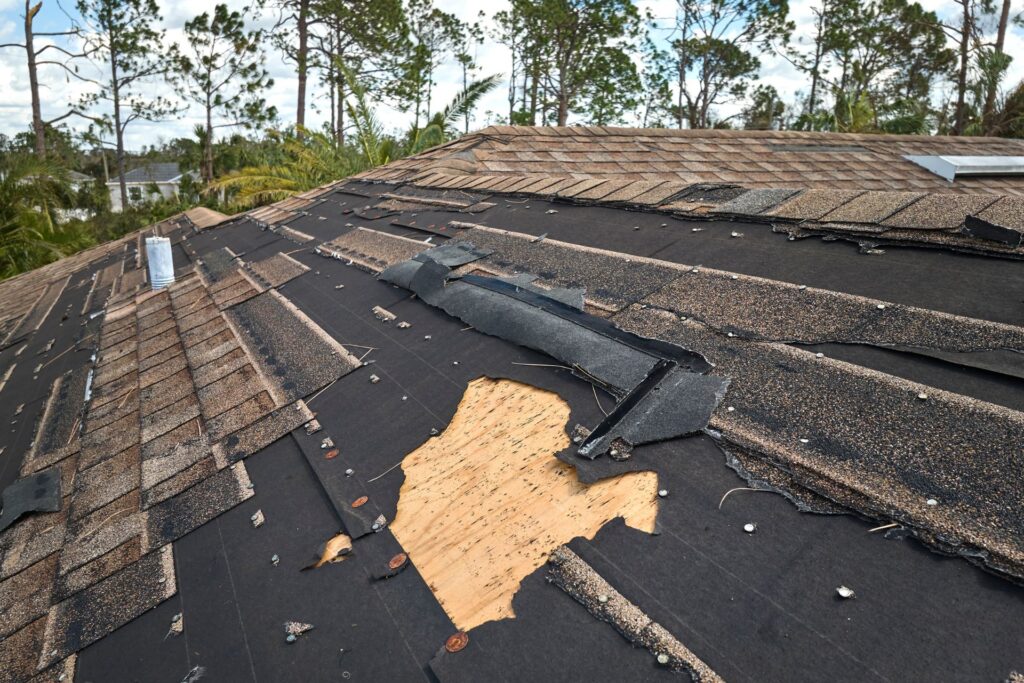
Factors Influencing Roof Replacement Cost In NZ
When considering roof replacement in New Zealand, it’s crucial to understand the various factors that influence the overall cost. This detailed guide aims to provide homeowners with comprehensive insights into what drives the price of a roof replacement, ensuring you can make informed decisions tailored to your needs and budget.
Material Choices
The selection of roofing materials is a significant determinant of the project’s cost. In New Zealand, homeowners have a variety of options, each with its own set of advantages, aesthetic appeal, and price range.
Metal Roofing: Often chosen for its durability and resistance to harsh weather, metal roofing is a popular choice. It comes in different types, such as Colorsteel, which is well-regarded for its long lifespan and minimal maintenance requirements. While metal roofing is initially more expensive, its longevity can make it a cost-effective option in the long run.
Tile Roofing: Tile roofs, made from either concrete or clay, offer a classic look that can enhance the aesthetic of your home. They are known for their durability and ability to withstand New Zealand’s varied climate. However, tile is heavier than other materials and may require additional structural support, which can increase the cost.
Shingle Roofing: Asphalt shingles are a cost-effective and versatile roofing material. They are relatively easy to install and come in a variety of colors and styles. However, they tend to have a shorter lifespan than metal or tile roofing, which could lead to higher costs over time due to more frequent replacements.
Roof Size and Design
The overall size and complexity of your roof design play critical roles in determining the cost of replacement. A larger roof area naturally requires more materials and labor. Moreover, complex designs with multiple slopes, angles, or architectural features such as skylights and chimneys can increase the difficulty of the job, thereby raising the price. Custom work tailored to specific design elements can significantly impact the final cost.
Labor Costs
Skilled labor is essential for a successful roof replacement, contributing substantially to the project’s overall expense. The cost of labor can vary significantly across different regions of New Zealand, influenced by the availability of skilled workers and regional cost of living differences. Choosing a reputable and experienced contractor is crucial, as quality workmanship can prevent costly issues down the line.
Location and Accessibility
Your home’s location and the accessibility of your roof can affect the replacement cost. Factors such as the transportation of materials to remote areas and the ease with which contractors can access your roof play into the overall pricing. Homes that are difficult to access or require special equipment for roof replacement may incur higher costs.
Additional Costs
Several potential additional costs should be considered when planning a roof replacement. These include:
Removing the Old Roof: In some cases, the existing roof must be completely removed, which adds to the labor and disposal costs.
Permits and Inspections: Depending on your local council’s requirements, you may need to obtain permits and schedule inspections, which can add to the cost.
Unforeseen Repairs: Once the old roof is removed, there may be unexpected damage to the structure underneath, such as water damage or rot, which would require additional repairs.
By understanding these key factors, New Zealand homeowners can better navigate the process of roof replacement, making decisions that balance cost with the long-term value and durability of their new roof. Planning carefully and selecting the right materials and professionals for the job can ensure a successful and cost-effective roof replacement project.
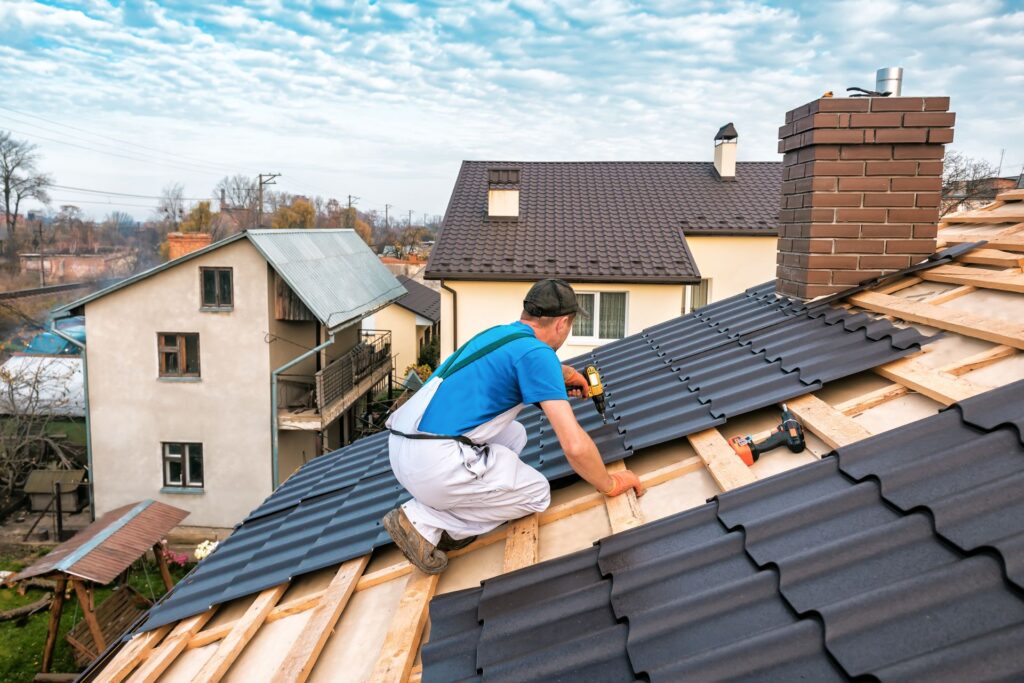
Average Roof Replacement Costs In NZ
When considering a home improvement project as significant as a roof replacement in New Zealand, homeowners often seek a clear understanding of the financial commitment involved. This guide aims to provide a detailed overview of the average costs associated with roof replacement in NZ, taking into account various material types and roof sizes. It’s essential, however, to bear in mind that these figures are ballpark estimates. The actual costs can vary widely based on numerous factors, including your specific location, the complexity of your roofing structure, and the current market rates. Therefore, we strongly advise obtaining multiple quotes from reputable service providers to ensure you get the best value for your investment.
Average Roof Replacement Costs in New Zealand
Roof replacement costs in New Zealand can range significantly depending on the materials used and the size of the roof. Here’s a breakdown of average costs by material type and roof size to give you a starting point in your budgeting process:
Metal Roofing: Metal roofs, known for their durability and longevity, are a popular choice in NZ. For a standard single-story house, replacing a metal roof can cost anywhere from NZD $50 to $70 per square meter. This price includes both material and installation costs. For a house with a roof area of 100 square meters, you’re looking at an estimated total of NZD $5,000 to $7,000.
Concrete Tile Roofing: Concrete tiles offer a different aesthetic and come with their own set of advantages. The cost of replacing a concrete tile roof ranges from NZD $60 to $80 per square meter. Therefore, for a 100 square meter roof, the total cost would be approximately NZD $6,000 to $8,000.
Long-run Steel Roofing: Another favored option is long-run steel roofing, which balances cost-effectiveness with durability. The installation of a long-run steel roof typically costs between NZD $55 to $75 per square meter. For a 100 square meter roof, this equates to around NZD $5,500 to $7,500 in total costs.
Variability of Costs and the Importance of Quotes
It’s important to underscore that the above estimates are generalizations. The actual cost of your roof replacement project could be influenced by several variables, such as:
Geographical Location: Roof replacement costs can vary from region to region. Urban areas might offer more competitive pricing due to the higher number of service providers.
Roof Complexity: The presence of multiple levels, steep pitches, or unique architectural features can increase the overall cost.
Removal of Old Roofing: The process of removing and disposing of the existing roofing material can add to the cost, especially if the material is heavy or requires special handling.
Given these variables, it’s paramount to solicit and compare quotes from multiple roofing contractors. Not only does this provide a clearer picture of the potential costs, but it also offers insight into the timeline and the contractors’ experience and reliability. Remember, the cheapest quote isn’t always the best choice; quality and trustworthiness are equally crucial factors to consider.
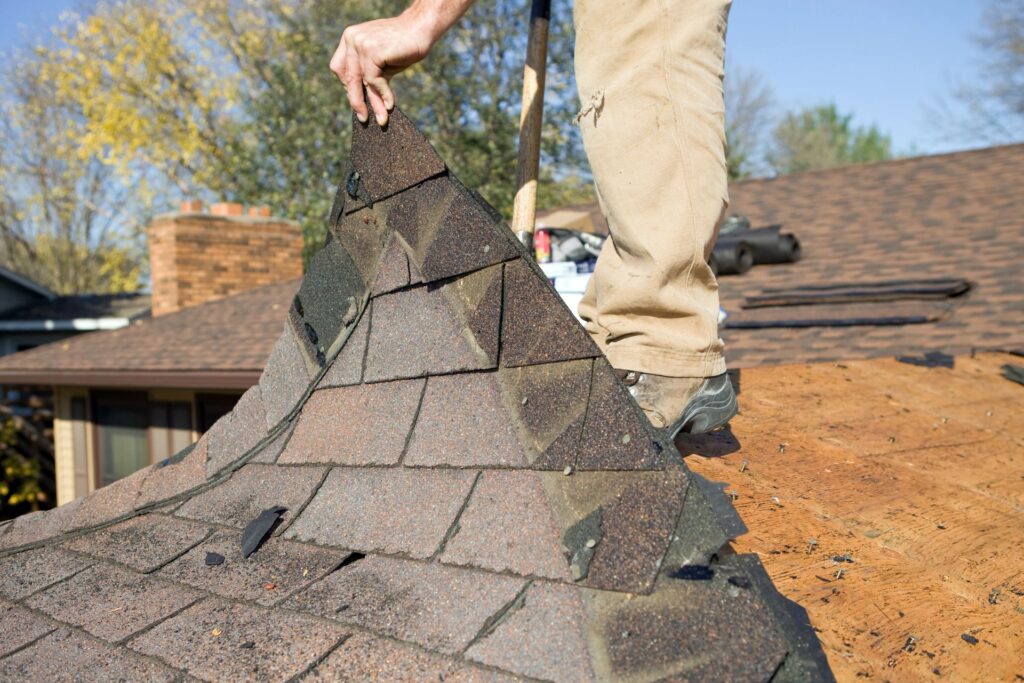
How To Save Money On Roof Replacement
Replacing your roof is a significant investment in your home, one that can improve both its value and safety. However, it’s also an area where costs can spiral if not managed carefully. In this comprehensive guide, we’ll explore practical strategies for saving money on your roof replacement without compromising on quality. From choosing the right materials to understanding the best timing, let’s dive into how you can make smart, cost-effective decisions for your roofing project.
Choosing the Right Material
The material you select for your new roof plays a crucial role in both its durability and cost. While high-end materials like slate or copper offer longevity and a distinct aesthetic, they come with a higher price tag. On the other hand, asphalt shingles, the most popular roofing material in the U.S., provide a balance of durability, affordability, and a wide range of styles to complement your home.
When considering materials, think long-term. Metal roofing, for example, can be more expensive upfront but offers excellent durability and energy efficiency, potentially saving you money on repair and utility bills over time. Research and compare the lifespan, maintenance requirements, and total cost of ownership of each material to find the best fit for your budget and your home’s needs.
Getting Multiple Quotes
One of the most effective ways to ensure you’re getting a fair price on your roof replacement is to obtain multiple quotes from reputable contractors. This step cannot be overstated. Prices can vary significantly between providers, and without comparing, you might end up paying more than necessary.
When soliciting quotes, ensure that the estimates are detailed and compare like-for-like in terms of materials, labor, and warranty. This clarity will help you make an informed decision based not only on price but also on the value offered by each contractor.
Considering Timing
The timing of your roof replacement can significantly impact the cost. Demand for roofing services fluctuates seasonally, with spring and summer being the busiest times for contractors. During these peak periods, prices can be higher, and you might find it harder to book a preferred contractor due to high demand.
If possible, consider scheduling your project for the off-season—late fall or winter. During these times, contractors may offer discounts to keep their teams busy. Plus, obtaining permits and scheduling inspections may be faster due to lower overall demand for these services.
DIY Considerations
While the idea of a DIY roof replacement might be tempting as a way to save costs, it’s crucial to approach this option with caution. Roofing is a highly specialized task that requires the right skills, tools, and safety measures. Incorrect installation can lead to significant issues, from leaks to structural damage, that could cost more to repair than the original replacement.
There are, however, certain preparatory or minor tasks you might be able to handle yourself, such as removing old shingles or performing a thorough attic inspection for signs of leakage or damage. If you have the skills and knowledge, these DIY efforts can reduce the labor costs. Nevertheless, for the actual installation, hiring a professional is strongly advised to ensure the job is done safely and correctly.
A roof replacement is a considerable investment, but with the right approach, you can save money without compromising on quality. By carefully choosing materials, comparing quotes, considering the timing of your project, and understanding the limits of DIY, you can ensure a cost-effective and successful roof replacement. Remember, the goal is not just to save money upfront but to invest wisely in your home’s future safety, energy efficiency, and resale value.
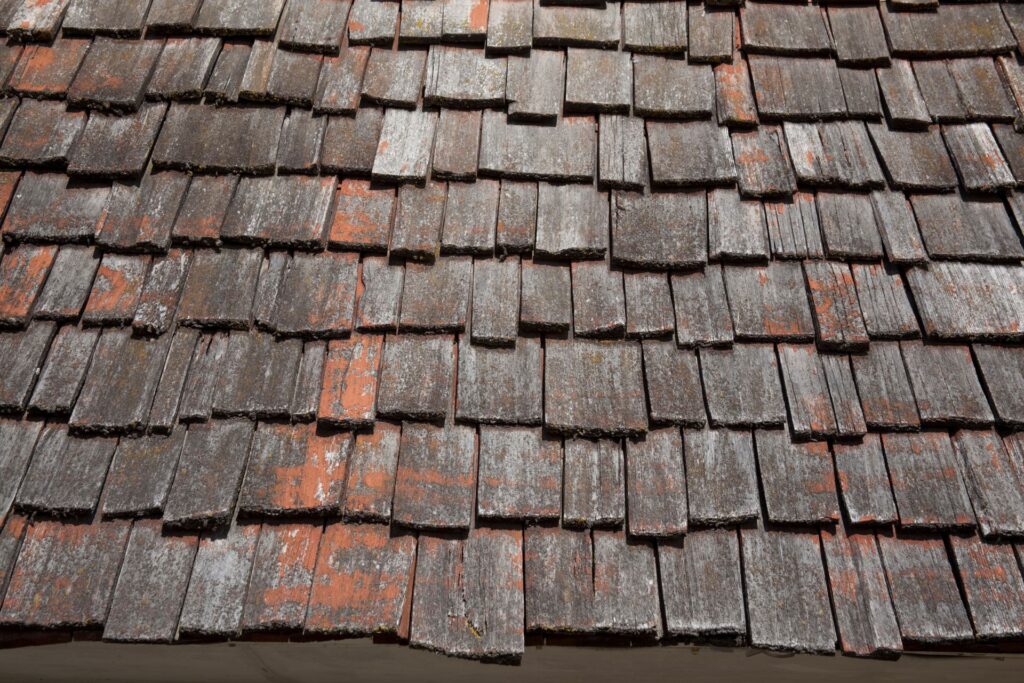
Selecting A Roofing Contractor
When it comes to home maintenance, selecting the right roofing contractor is a pivotal decision that can significantly impact the longevity and performance of your roof. Roofing projects, whether they involve repair, replacement, or installation, require a substantial investment. Hence, it’s crucial to ensure that you’re entrusting this task to a professional who is not only capable but also reliable. In this detailed guide, we’ll walk you through the essential factors to consider when choosing a roofing contractor, focusing on their qualifications and experience, the importance of insurance and warranties, and the value of reviews and references.
Qualifications and Experience
First and foremost, the qualifications and experience of your roofing contractor are non-negotiable factors. A licensed contractor is a must-have because it means they have met the industry standards and have undergone the necessary training to obtain their license. This also ensures they are up to date with building codes and regulations, which vary by location. Experience, on the other hand, is equally important. An experienced contractor brings a wealth of knowledge and practical skills to the table, having likely dealt with a wide range of roofing issues and scenarios. They can provide valuable insights into the best materials and practices for your specific needs.
Insurance and Warranties
Insurance coverage is another critical aspect to consider. A reputable roofing contractor should have comprehensive liability insurance and workers’ compensation. This protects you from being held responsible for any accidents or damages that occur on your property during the project. It’s advisable to ask for proof of insurance and verify its validity with the insurance provider.
Warranties are equally important, as they give you peace of mind and protect your investment long after the project is completed. Look for contractors who offer manufacturer warranties on the materials and workmanship warranties on their labor. These warranties can vary significantly, so it’s essential to understand what is covered and for how long. A reliable contractor will be transparent about the warranty details and ensure you have all the information you need.
Reviews and References
In today’s digital age, online reviews are a valuable resource when selecting a roofing contractor. They provide insights into the contractor’s reliability, quality of work, and customer service. However, it’s crucial to read reviews from multiple sources to get a well-rounded view. Remember, no contractor will have a perfect score, but consistently positive reviews are a good sign.
Asking for references is also a wise step. A trustworthy contractor will be happy to provide a list of past clients you can contact. Speaking directly to these references allows you to ask specific questions about their experience with the contractor, the quality of work, and their overall satisfaction with the project. This first-hand feedback can be incredibly helpful in making your decision.
Selecting the right roofing contractor is a critical step in ensuring the success of your roofing project. By focusing on their qualifications and experience, verifying their insurance and warranties, and taking the time to read reviews and speak to references, you can make an informed decision that ensures your roofing project is in good hands. Remember, the goal is to find a professional who not only meets your needs but also provides peace of mind through their expertise and reliability.
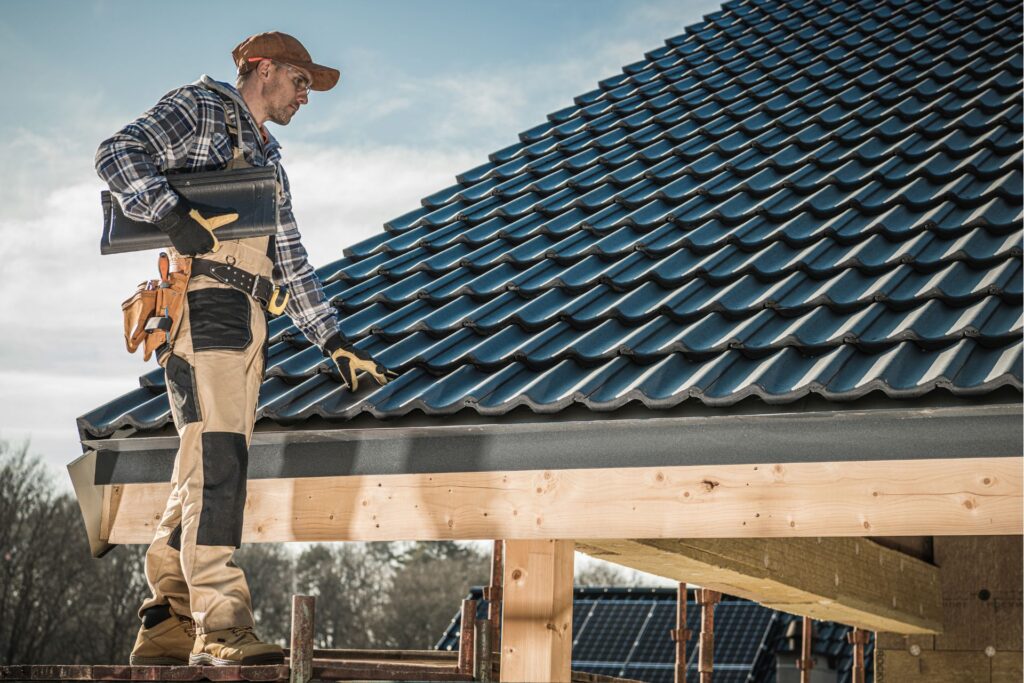
Preparing For Roof Replacement
When it comes to enhancing the value and safety of your home, few projects are as critical as roof replacement. This significant undertaking not only protects your property from the elements but also significantly boosts its curb appeal. However, the process can be extensive and requires careful preparation. In this guide, we’ll walk you through the essential steps you should take to prepare for a roof replacement, offering practical tips to ensure the project goes smoothly and what you can expect during the process.
Securing Your Property and Preparing the Area
The first step in preparing for a roof replacement is to secure your property and ensure the area around your home is ready. This involves several key actions:
Protect Your Pets and Children: The noise and activity during a roof replacement can be stressful for pets and might pose safety risks for small children. Consider arranging for them to stay at a friend’s or family member’s house during the busiest days of the project.
Move Vehicles: Construction equipment and materials need to be close to your home. Clearing your driveway and ensuring vehicles are parked away from the work area can prevent accidental damage and give workers the necessary space to operate efficiently.
Secure Outdoor Furniture and Decorations: Remove or cover outdoor furniture, grills, and decorations to protect them from debris. If you have a pool, covering it can prevent materials from falling in.
Trim Trees and Secure Loose Items: Trimming overhanging branches can provide roofers with unobstructed access and reduce the risk of damage. Secure or store loose items like garden tools and lawn decorations to prevent them from being blown away or damaged.
What to Expect During the Roof Replacement Process
Understanding what the roof replacement process involves can help you prepare mentally and logistically for the days ahead. Here’s a brief outline of what homeowners can typically expect:
1. Preparation and Delivery of Materials: Before the project begins, roofing materials will be delivered to your property. Workers will prepare the site, setting up ladders and safety equipment.
2. Removal of Old Roofing: The first major step is the removal of your old roof. This part of the process can be noisy and messy, with workers stripping away old shingles, underlayment, and possibly some of the decking.
3. Inspection and Repairs: With the old materials removed, the roofing team will inspect the underlying structure for damage or decay. Necessary repairs or replacements of the decking and underlayment will be made during this stage.
4. Installation of New Roofing Materials: After repairs, the installation of new shingles or other roofing materials begins. This includes laying down new underlayments, installing the new shingles, and ensuring everything is properly sealed and ventilated.
5. Cleanup and Final Inspection: Once the new roof is in place, the team will clean up the worksite, removing debris, nails, and leftover materials. A final inspection ensures the quality of the work and that the new roof meets all standards.
Roof replacement is a significant investment in your home’s future, protecting you and your loved ones from the elements and enhancing your home’s aesthetic and market value. By taking the time to properly prepare your property and understanding what the process entails, you can ensure a smoother experience and a result that you’ll be happy with for years to come. Remember, the key to a successful roof replacement project lies in careful planning, clear communication with your contractor, and a bit of preparation work.
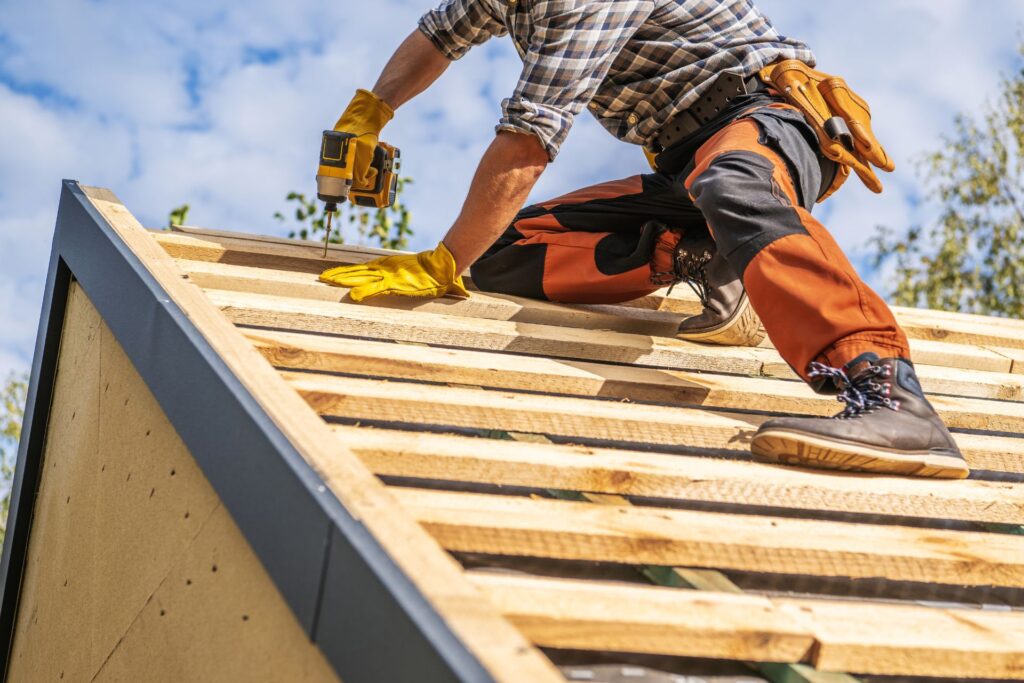
FAQs: About The Roof Replacement Cost In New Zealand
What are the most common signs that my roof needs to be replaced?
Common indicators that your roof may need replacement include visible leaks, missing or broken tiles or shingles, sagging, significant moss or mold growth, and experiencing drafts or unusual temperatures indoors, suggesting poor roof insulation.
How do the costs of different roofing materials compare in NZ?
In New Zealand, metal roofing is often the most cost-effective option due to its durability and relatively low material and installation costs. Tile roofs, while more expensive, offer a distinct aesthetic and longevity. Shingles can vary in price, with higher-end materials like cedar costing more but providing a unique look and good durability.
Can the size and design of my roof affect the replacement cost?
Yes, the size of your roof directly impacts the cost of replacement, as larger roofs require more materials and labor. Additionally, complex designs with multiple slopes, angles, or features like chimneys and skylights can increase the cost due to the added difficulty of installation.
What additional costs should I be aware of when replacing my roof?
Be prepared for potential additional costs such as the removal and disposal of your old roof, necessary repairs to the roof structure discovered during replacement, permits, and inspections required by local regulations.
How can I save money on my roof replacement in NZ?
To save money on roof replacement, consider selecting durable yet cost-effective materials, getting multiple quotes from contractors to ensure competitive pricing, and planning your project during off-peak seasons when contractors may offer discounts.
What qualifications should I look for in a roofing contractor?
Ensure your roofing contractor is licensed and has extensive experience with roof replacements in NZ. They should also have comprehensive insurance to protect against any damages or accidents during the project and offer warranties on both materials and labor.
How do I prepare my property for the roof replacement process?
Prepare your property by securing loose items in your attic, moving vehicles away from the work area, covering landscaping or outdoor furniture to protect from debris, and ensuring pets and children are safely away from the construction area.
How long does a typical roof replacement take in New Zealand?
A typical roof replacement in New Zealand can take anywhere from a few days to a week, depending on the size and complexity of the roof, weather conditions, and any unforeseen issues that may arise during the project.
Can I live in my house while the roof is being replaced?
In most cases, you can stay in your home during the roof replacement process. However, be prepared for noise and slight disruptions. Your contractor will work to minimize the impact on your daily life.
Does replacing my roof increase the value of my home?
Yes, replacing an old or damaged roof can significantly increase your home’s value. It not only improves the curb appeal but also assures potential buyers that the home is well-maintained, potentially making it more attractive in the real estate market.
Conclusion
Crafting an insightful conclusion is essential to sum up the vital points discussed in the article about roof replacement, emphasizing its significance as a wise investment in your home’s future. We’ve navigated through the tell-tale signs signaling the need for a roof overhaul, explored a variety of roofing materials, and underscored the undeniable value it adds to your property. It’s imperative to view this process not just as an expense but as a strategic investment that ensures your home’s safety, boosts energy efficiency, and elevates property value.
Now is the moment to act—consult with professional roofing contractors to receive personalized advice and a tailored quote that meets your home’s specific needs. This proactive step is not just about securing a durable roof; it’s about investing in your home’s longevity and your family’s comfort. Embrace this opportunity to enhance your property by reaching out to trusted professionals today, setting a foundation for a secure, efficient, and valuable home environment.
About the Author:
Mike Veail is a recognized digital marketing expert with over 6 years of experience in helping tradespeople and small businesses thrive online. A former quantity surveyor, Mike combines deep industry knowledge with hands-on expertise in SEO and Google Ads. His marketing strategies are tailored to the specific needs of the trades sector, helping businesses increase visibility and generate more leads through proven, ethical methods.
Mike has successfully partnered with numerous companies, establishing a track record of delivering measurable results. His work has been featured across various platforms that showcase his expertise in lead generation and online marketing for the trades sector.
Learn more about Mike's experience and services at https://theleadguy.online or follow him on social media:

